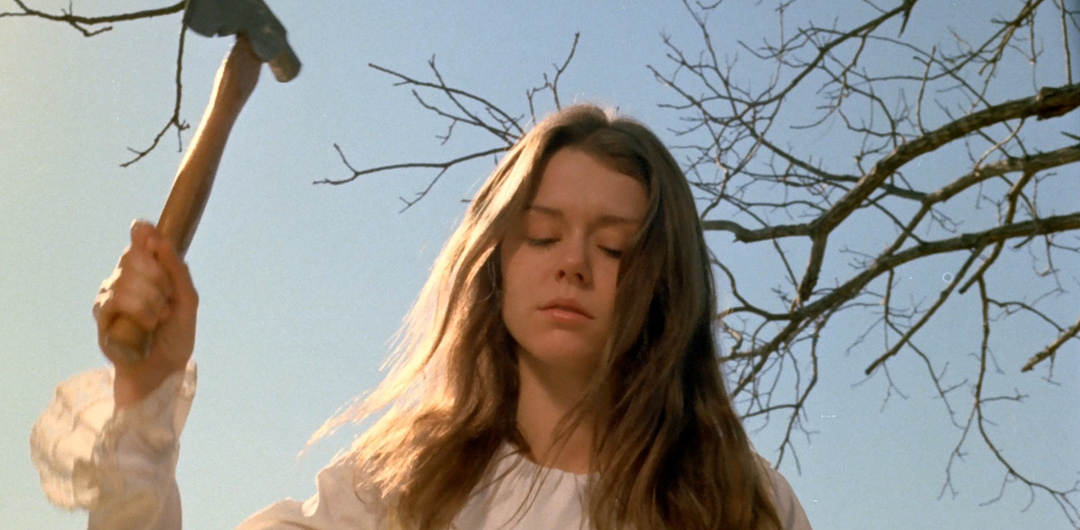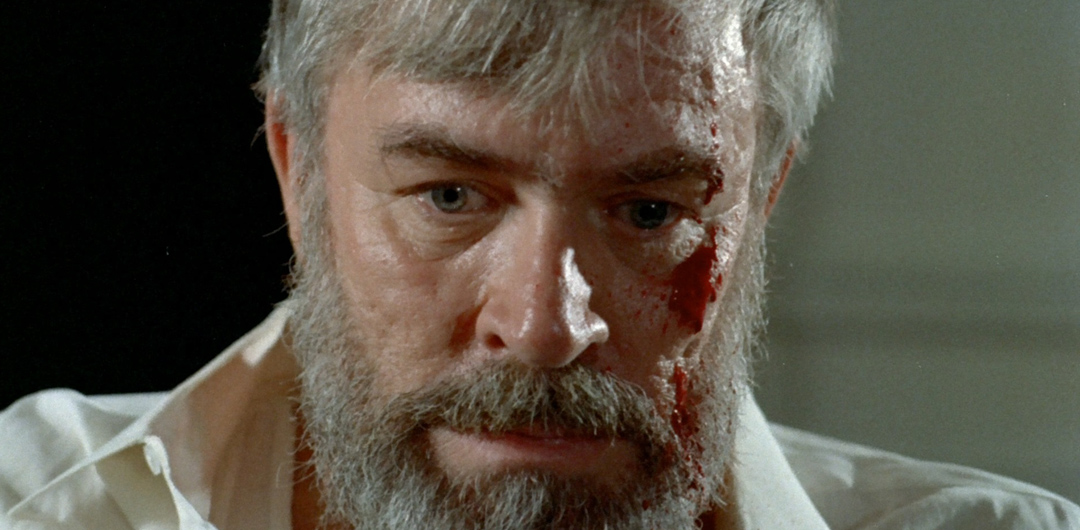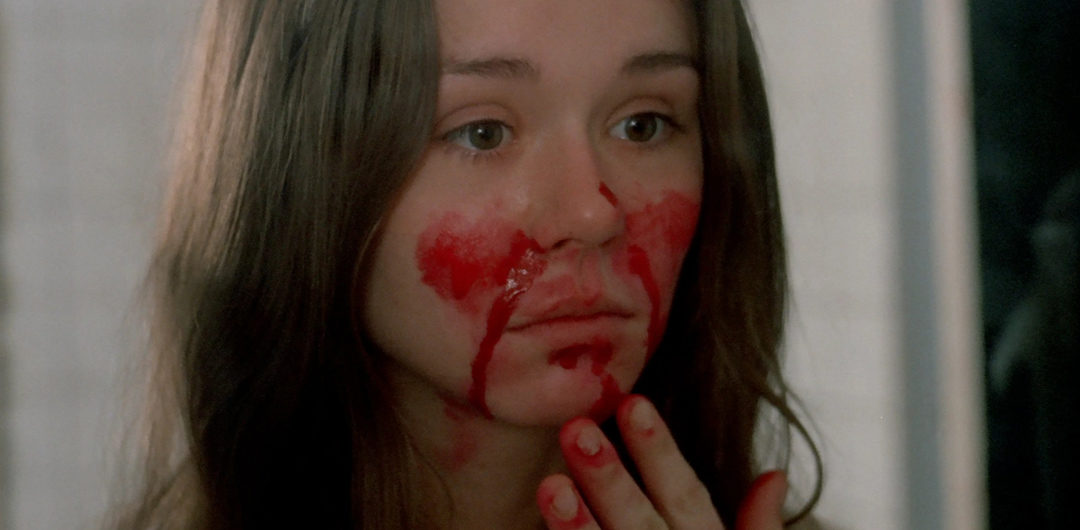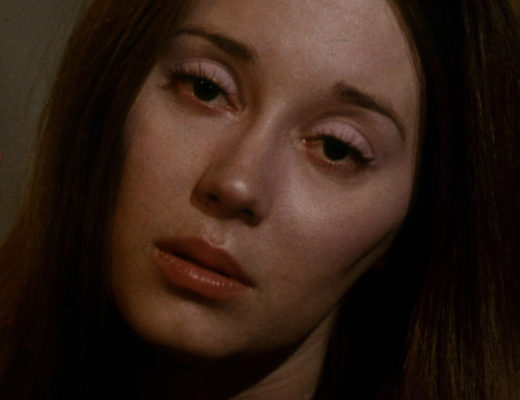You want to know everything there is to know about this person. You want to hear them talk for hours, about anything they choose to talk about. You want them to cry on your shoulder, smile at coincidental commonalities, kiss you passionately, and eventually, share every aspect of life that’s worth sharing. But you are not getting in.
That’s the dichotomy of Axe. And that’s why it’s so remarkable.
Barren trees shroud a musty farmhouse. A monophonic synth sways unevenly while a piano and sparse percussion tinkle in discordance. Cold. Desolate. Just out of reach. This is how Axe begins, and this is how it will continue.
Steele, Billy, and Lomax beat a man to death and watch his gay lover jump out of a window. As sirens blare, we hit the pavement. A grocery store cashier is menaced. Pieces of fruit are shot. Seeking refuge for the night, the goons end up at a farmhouse. Once inside, they discover repressed, disconnected Lisa and her paralyzed grandfather. Being savages and all, Steele and Lomax treat their “hosts” like garbage — demanding meals, waving guns, and drooling all over Lisa. Billy empathizes. Lomax has rape on the mind. Lisa has her straight razor.
Axe is 68 minutes of raggedly stylish isolation. Eleven human beings appear onscreen. Communication is sparse. Landscapes reek of musty death. And everything, from the soundtrack’s ascetic instruments to the segregated photography, reinforces the loneliness. It’s like Kubrick’s Overlook Hotel was compressed and saturated with artless-yet-artful grit, then poured over Rural, USA by Jean Rollin, thereby creating an entire universe for Lisa and friends to thrive.
This is a reality where the only form of associative contact is a television set. And that’s the trick that Axe continually turns — it envelops emotionally, forcing us to care. We’re witness to a perverse sense of chintz-realism that can only be embraced, as it’s crafted with total confidence. Produced by “Doctor Gore” himself, J.G. “Pat” Patterson, and written-directed by Frederick R. Friedel, he of the also-stunning Kidnapped Coed, the film works with what it has and rarely abates. Even when the edits eat themselves. Even when Lisa delivers lines like a stoned alien. We hang on. And Axe, with its amalgam of cold dejection and warm formality, hangs on with us. Uncomplicated. Mysterious. Endlessly attractive.
Axe is going to last forever and I’m going to appreciate it forever. Sparse, bleak, and tangible, this is a lovely example of low-budget brackets working as an asset, rather than a detractor. From the soundtrack to the 68 minute length, this film does everything right, fashioning a form of ideal exploitation that no one really eulogizes, but everyone should.






